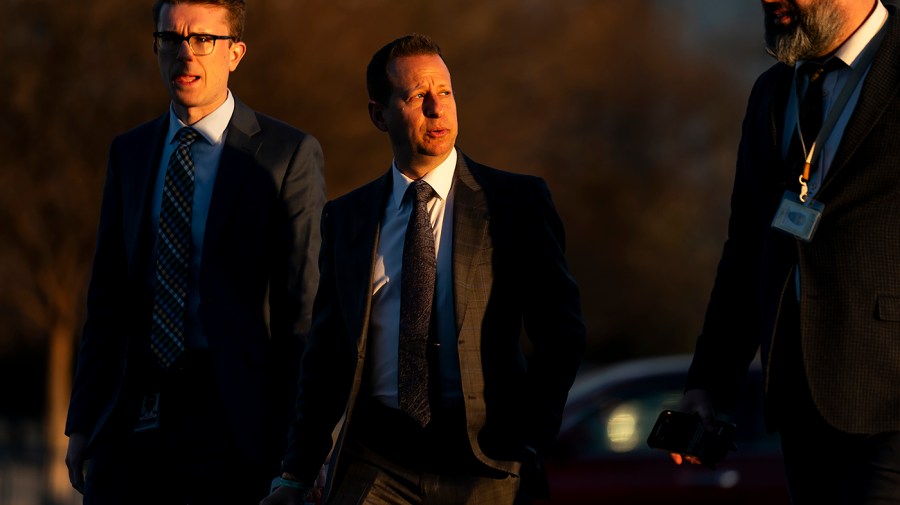The Decline of the House DOGE Caucus
Rep. Jared Moskowitz (D-Fla.) recently declared the House DOGE Caucus, initially set up to support Elon Musk’s government efficiency efforts, as completely defunct. In a Politico interview published in a Q&A format, he stated, “The DOGE caucus is dead. It’s defunct.”
Moskowitz lamented the group’s inactivity, mentioning that they haven’t convened in months. “We only had two total meetings in five months,” he noted, reflecting on the lack of engagement within the caucus.
Formation and Purpose of the DOGE Caucus
The House DOGE Caucus was formed to align with Musk’s Department of Government Efficiency (DOGE), aimed at identifying and eliminating waste and fraud within the federal government. Moskowitz became its first Democratic member in December, facing backlash from other Democrats for his involvement. He argued against the criticism by stating, “The time for staying in safe spaces is over,” emphasizing the need for Democrats to engage in relevant discussions.
Despite joining with optimism, Moskowitz soon realized that the caucus was not as influential in the process as anticipated. By February, he expressed concern that while discussions within the group had been beneficial, they were not included in Musk’s initiatives as initially promised.
Communication Breakdowns
Moskowitz voiced his disappointment regarding the lack of communication between the caucus and Musk’s operations at DOGE. “It doesn’t appear to be any communication between what Elon is doing and the caucus. It seems Congress is behind and being left out,” he commented, highlighting the disconnect between the two entities.
Three months after his initial concerns, Moskowitz reiterated that the caucus had not been involved in DOGE activities whatsoever. He emphasized this by saying, “We weren’t involved at all in anything [happening at DOGE], which Elon was in charge of. Zero. Zilch. Nada. [Musk] did it all on his own.”
Failures of the DOGE Commission
Reflecting on the aims of the DOGE commission, Moskowitz expressed regret about its failures. He was hopeful that some government processes could be improved for efficiency but ultimately deemed DOGE a “complete failure.” He pointed out that no significant improvements have been observed in federal efficiency thanks to its efforts.
Further illustrating his point, Moskowitz referenced the Newark airport, which has recently been plagued with delays and staffing issues. He stated, “Ask the people in Newark—how efficiency is going,” suggesting that the intended outcomes of the DOGE initiative had not materialized.
Responses from Other Caucus Members
In contrast to Moskowitz’s stark evaluations, Rep. Aaron Bean (R-Fla.), co-chair of the DOGE Caucus, conveyed a more optimistic outlook. He stated, “Congress can enact long-term change, and our 100 committed members and eight specialized working groups are working to codify critical reforms and prepare legislation that will unlock savings for the American people.”
Bean’s comments suggest that, despite internal challenges, there remains a determination among certain members of the caucus to pursue efficiency and reform within federal spending. The contrast between Moskowitz’s perspective and Bean’s highlights ongoing tensions regarding the caucus’s effectiveness and direction.
Current State and Future Prospects
With the caucus now deemed inactive by Moskowitz, questions linger about the future of its initiatives. The forecasted path forward remains uncertain, particularly as the public awaits tangible outcomes from the supposed governmental efficiency reforms that DOGE was expected to champion.
Doubts surrounding the efficacy of the DOGE commission may lead many to question the potential for significant governmental reforms spearheaded by groups like the DOGE Caucus. As its members navigate internal disparities and external challenges, remaining relevant and impactful in the broader legislative landscape may prove to be a monumental task.
Conclusion
The House DOGE Caucus, once a promising initiative in pursuit of efficiency, has faced considerable setbacks and growing disillusionment among its ranks. With leaders like Moskowitz openly declaring the group’s demise and others maintaining a hopeful perspective, the future of the caucus hangs in the balance. Moving forward, members will need to recalibrate their strategies and priorities to foster effective engagement, revive crucial discussions, and ultimately fulfill their stated goals of enhancing efficiency within the federal government.
Copyright 2025 Nexstar Media, Inc. All rights reserved. This material may not be published, broadcast, rewritten, or redistributed.
For the latest news, weather, sports, and streaming video, head to The Hill.
https://www.yahoo.com/news/moskowitz-says-doge-caucus-dead-020054023.html



